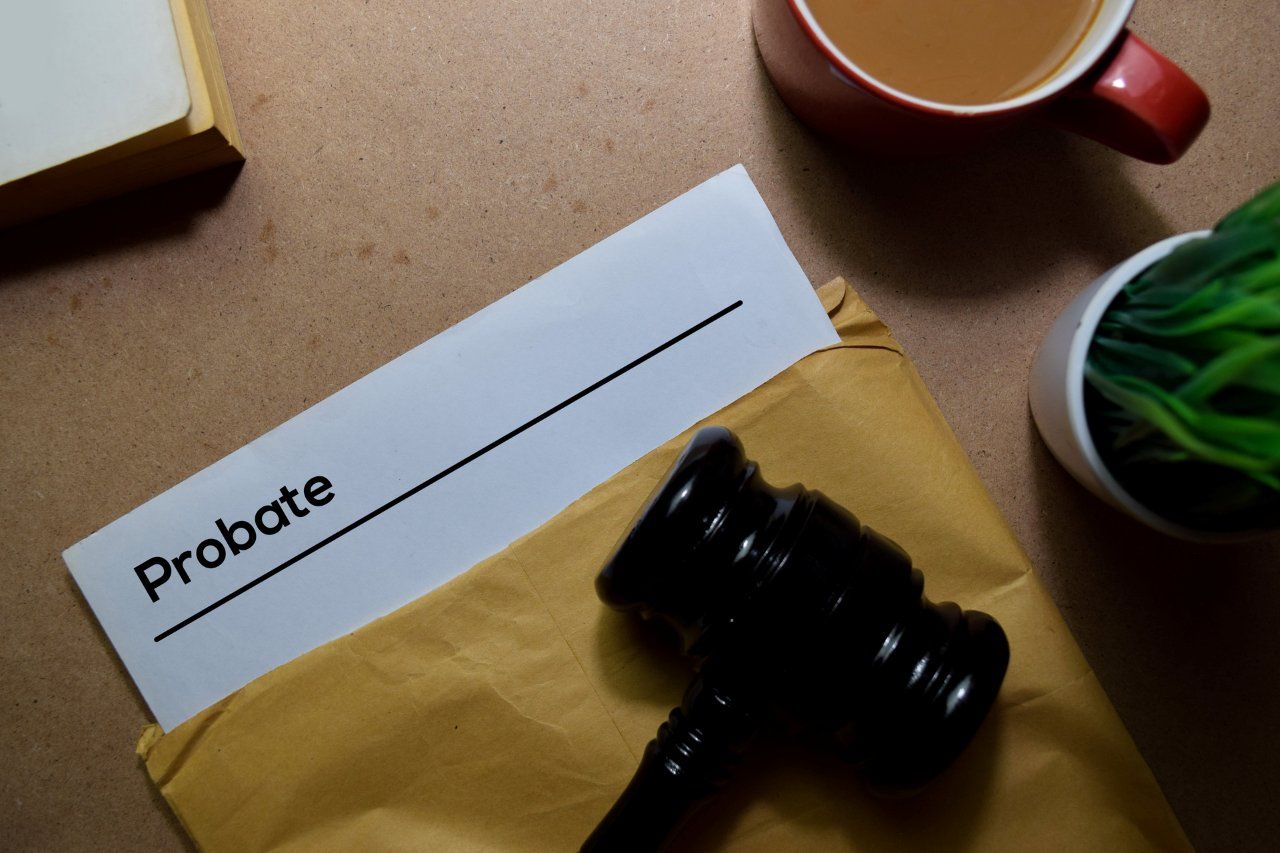What is Probate: Everything You Need To Know

Probate is a term that often arises during a deeply emotional and stressful time—after the death of a loved one. For many, it's unfamiliar territory. Understanding what probate is and how it works can provide clarity and reassurance when you’re suddenly responsible for managing someone’s estate. Whether you’re preparing for the future or handling a recent loss, this guide will walk you through the probate process and what it means for you.
What is Probate?
Probate is the legal process of administering a person’s estate after they die. This includes validating their will (if one exists), identifying their assets, settling any debts and taxes, and distributing the remaining estate to the correct beneficiaries. Essentially, it gives someone the legal authority to act on behalf of the deceased, ensuring that everything is handled in line with the law.
When people refer to the “probate of a will,” they are talking about this formal process. If there is no will, the estate is administered under the rules of intestacy. In either case, probate ensures the estate is managed correctly and fairly.
How Does Probate Work?
Once a person passes away, their estate cannot usually be distributed until probate is granted. The first step is to confirm whether there is a valid will. If there is, the named executor applies for a Grant of Probate. If not, a close relative or other appropriate individual can apply for Letters of Administration.
The executor or administrator must identify all of the deceased’s assets, including property, savings, pensions, and personal items. They will then arrange for a valuation of the estate, which is needed for both inheritance tax purposes and for financial institutions that may require confirmation of the estate’s value before releasing funds.
Once the estate has been valued, all outstanding debts must be settled. This can include funeral costs, utility bills, credit card debts, and any taxes due. Only after this step can the estate be distributed to the rightful heirs or beneficiaries.
If you are currently going through this process and need advice, our team provides dedicated legal support during estate administration to help you navigate each stage confidently.
Who Needs Probate?
Not every estate will require probate. It depends largely on the nature of the assets and how they were held. For instance, assets that are jointly owned often pass automatically to the surviving co-owner and may not require probate. Similarly, smaller estates with minimal financial holdings may be released by banks without the need for formal probate.
However, if the deceased owned property in their sole name, held significant savings or investments, or if there is any dispute among beneficiaries, probate will almost certainly be necessary. It is always advisable to seek legal guidance if you are unsure, as acting without probate when it is legally required can cause serious complications.
What is a Grant of Probate?
A Grant of Probate is a legal document issued by the Probate Registry. It confirms that the will is valid and gives the executor the authority to access the deceased person’s assets, pay off liabilities, and distribute the estate according to the will. Financial institutions, HMRC, and other parties often require this document before they will take any action relating to the estate.
If there is no will, or if the named executor is unable or unwilling to act, the process is slightly different. In those cases, Letters of Administration are issued instead, granting authority to a suitable next of kin.
Types of Probate and Their Differences
There are different forms of probate depending on the circumstances. If there is a will and an executor is named, a Grant of Probate is issued. If there is no will, the court issues Letters of Administration, which authorise someone—usually a close family member—to act as administrator of the estate.
A third possibility arises when there is a will, but no executor has been appointed or the appointed individual is unable to carry out the role. In such cases, the court may grant Letters of Administration with Will Annexed. While all three serve to give legal authority to manage an estate, the application process and the responsibilities involved can vary.
How Long Does Probate Take?

The length of time probate takes depends on the complexity of the estate and whether there are any complications. On average, it takes between six months and a year from the date of application. More complex estates—particularly those involving international assets, disputes between beneficiaries, or business interests—can take considerably longer.
The process can also be delayed by factors outside the executor’s control, such as delays at the Probate Registry or issues with missing documentation. However, recent changes to the probate system have aimed to improve efficiency. You can read more about the new probate procedure and how it might impact your case on our website.
Common Mistakes in Probate
Probate is a legal process, and mistakes—no matter how innocent—can have serious consequences. Common errors include misinterpreting the terms of a will, failing to accurately value the estate, overlooking debts, missing tax deadlines, and distributing the estate prematurely. Executors who fail in their duties may even be held personally liable for any financial losses to the estate or its beneficiaries.
This is why it is often advisable to engage a solicitor with experience in probate law. They can ensure that all legal obligations are met, the correct procedures are followed, and the estate is administered efficiently.
How to Avoid Probate
Some individuals choose to take steps during their lifetime to reduce the likelihood that their estate will go through probate. These steps can include placing assets into trust, holding property jointly, or designating beneficiaries on financial accounts such as pensions or life insurance policies.
While these measures may help, they are not appropriate in all cases and can carry tax implications if not structured carefully. For example, transferring assets or establishing trusts without understanding the inheritance tax rules may create unintended liabilities. We strongly recommend seeking legal advice before making changes to your estate plan.
Final Thoughts
Probate can be complex, but with the right support, it does not need to be overwhelming. Understanding the basics of the process—and knowing when to seek help—can provide both clarity and peace of mind.
At Ash Hill Solicitors, we offer experienced, compassionate legal assistance in all matters relating to probate and estate administration. Our team is based in North Harrow but serves clients across London and beyond. Whether you are administering a loved one’s estate or planning ahead for your own future, we are here to provide clear, professional guidance at every step.
To speak with one of our probate solicitors, contact us today for a free, no-obligation 20-minute consultation.

Author Bio:
Nasreen Akhter is the founding director of Ash Hill Solicitors and an experienced probate solicitor with over 10 years in private client law. She specialises in wills, estate administration, powers of attorney, and inheritance planning. Known for her calm, compassionate approach, she guides clients through sensitive matters with clarity and care.
Nasreen is also a civil and commercial mediator, committed to resolving disputes efficiently and constructively. She is fully accredited and listed on the Solicitors Regulation Authority (SRA) register.
Outside of work, she’s a dedicated mum and chairs Happy Orphans Worldwide, a charity supporting vulnerable children across the globe.




